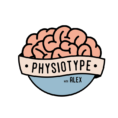Object and Class
What does it mean to be an object type?
In the world of personality type systems, the Object Type corresponds to being a Sensor personality type. People who fit into this category are drawn to tangible, real-world objects and systems. They are interested in specific, hard-coded systems and excel at understanding them in detail.
Object Types tend to see each system and entity as separate from one another and are known for their ability to understand individual systems in great detail. Their statements, such as “John is taller than Sally” or “Rebecca is taller than Tim,” are precise and accurate, but not broadly applicable.
Contrary to popular belief, Object Types are not less intelligent. Their ability to accurately understand systems and use that knowledge to reach their goals makes them just as intelligent as Class Types, who have abstract beliefs that help them achieve their goals.
Object Types can be identified as those with an S in their label in traditional Jungian typologies, including ESFP, ISFP, ESTP, ISTP, ESFJ, ISFJ, ESTJ, and ISTJ.


what does it mean to be a Class type?
In personality typing, being a Class Type is similar to being an Intuitive personality type in MBTI. People who fit into this category are more attracted to abstract systems, concepts, and symbols.
Class personality types tend to hold broad beliefs that can be applied in various situations, but not specifically to anyone. For instance, the statement “Men are taller than women” is a Class belief that has some truth but can be easily challenged anecdotally.
It’s a common misconception that Class Types are more intelligent than Object Types. However, this is not accurate. A Class Type who holds inaccurate beliefs and fails to achieve their goals is equally unintelligent as an Object Type who also fails to reach their objectives.
Class Types can be identified by the letter N in their label in traditional Jungian typologies, including ENFP, INFP, ENTP, INTP, ENFJ, INFJ, ENTJ, and INTJ.
It’s important to acknowledge that everyone has the capability to engage in both Class and Object thinking. We believe that the most intellectually well-rounded individuals are those who possess the ability to effectively utilize both forms of thought. However, it is our belief that people are born with a natural preference for one thought pattern or the other, and that this preference remains consistent throughout their lifetime.
Find Out Your Personality Type
Having trouble figuring out your Physiotype? Want to see if your Physiotype matches your MBTI or Socionics type?
